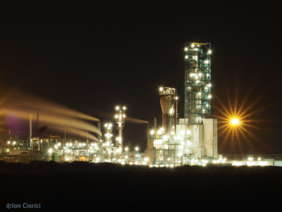Boston Consulting Group (BCG) is a global management consulting firm and a leading advisor on business strategy, which annually releases a ranking of the most innovative companies. The BCG ranking participants are chosen using a combination of quantitative and qualitative criteria. Companies are required to have annual revenue of at least $1 billion, a thousand or more employees, and growth rates that exceed their domestic GDP or industry average. BCG’s annual ranking of the most innovative companies is based on a survey of senior executives representing a wide variety of industries in every region worldwide and on an analysis of select financial metrics. These financial figures include: Total shareholder return (TSR), Revenue growth, and Margin growth. For the complete ranking, please visit the homepage of Boston Consulting Group.
For the first time ever there's a new leader at the top of BCG's annual list of the most innovative companies. Long-standing leader Apple was replaced by Google and now ranks third, whereas Google and Amazon occupy first and second place, respectively. Microsoft and Samsung round out the top five.
This year’s survey shows that the use of artificial intelligence (AI) is growing rapidly, and that many companies use it to support their innovation efforts. Despite the strong presence of tech companies in the ranking – they hold nine of the top ten places – traditional industries, such as Philips (29th place) and Siemens (21st place), account for more than half of the top 50 list. T-Mobile (#13), Dow DuPont, Vale (#19), Stryker (#35), and Rio Tinto (#49) joined the list for the first time.
Most of the strong innovators make extensive use of AI, and see positive results. Nine out of ten respondents in the current survey said that their companies are investing in AI, and more than 30% expect AI to greatly impact their industry over the next three to five years.
Tesla (number 9 on the 2019 list), which has developed into a pioneer in the electric vehicle market, but also manufactures and sells advanced battery and solar panel technology, announced that it will further process the “thinking” algorithms for the company’s Autopilot software which currently gives Tesla vehicles limited levels of autonomous driving capability.
Vale S.A. (number 19 on the list), a Brazilian multinational corporation engaged in metals and mining, is one of the pioneering companies in the field of AI-supported production. The company has opened the Vale Artificial Intelligence Center at the Tubarão site in Vitória, Brazil, which will run all of Vale's operations around the world. The Center aims to leverage the adoption of innovative technologies in all areas of the business with a team of professionals comprising scientists, data engineers and business experts.
Royal Dutch Shell PLC (30th place) uses a new artificial intelligence platform to enable predictive maintenance and spread AI-powered applications across the company. Shell plans to use technology from Microsoft’s Azure to predict when maintenance is required on compressors, valves and other equipment, as well as helping to steer drill bits through shale deposits. Shell is also deploying artificial intelligence tools to help computers run autonomously.
BP (number 46 on the 2019 list) uses machine learning to enhance its prediction models for oil and gas reservoir recovery. General Motors (40th place) deploys AI-aided design to reduce the weight of traditionally designed and manufactured parts by 40% while increasing their strength by 20%.
AI leaders often rely on ecosystems. Some industrial companies, car and aircraft manufacturers, for example, work in broad partnerships with multiple companies. Today, a typical European automobile company relies on an ecosystem of more than 30 partners across five different industries and several countries to make their cars connected, electric, and autonomous.
Out of 50 companies listed in the rankings 32 originate from the United States. All other companies have their headquarters in Germany (9 participants), the United Kingdom (2 participants, Japan (2 participants), China (1 participant), Brazil (1 participant), Netherlands (1 participant), France (1 participant), and South Korea (1 participant).
